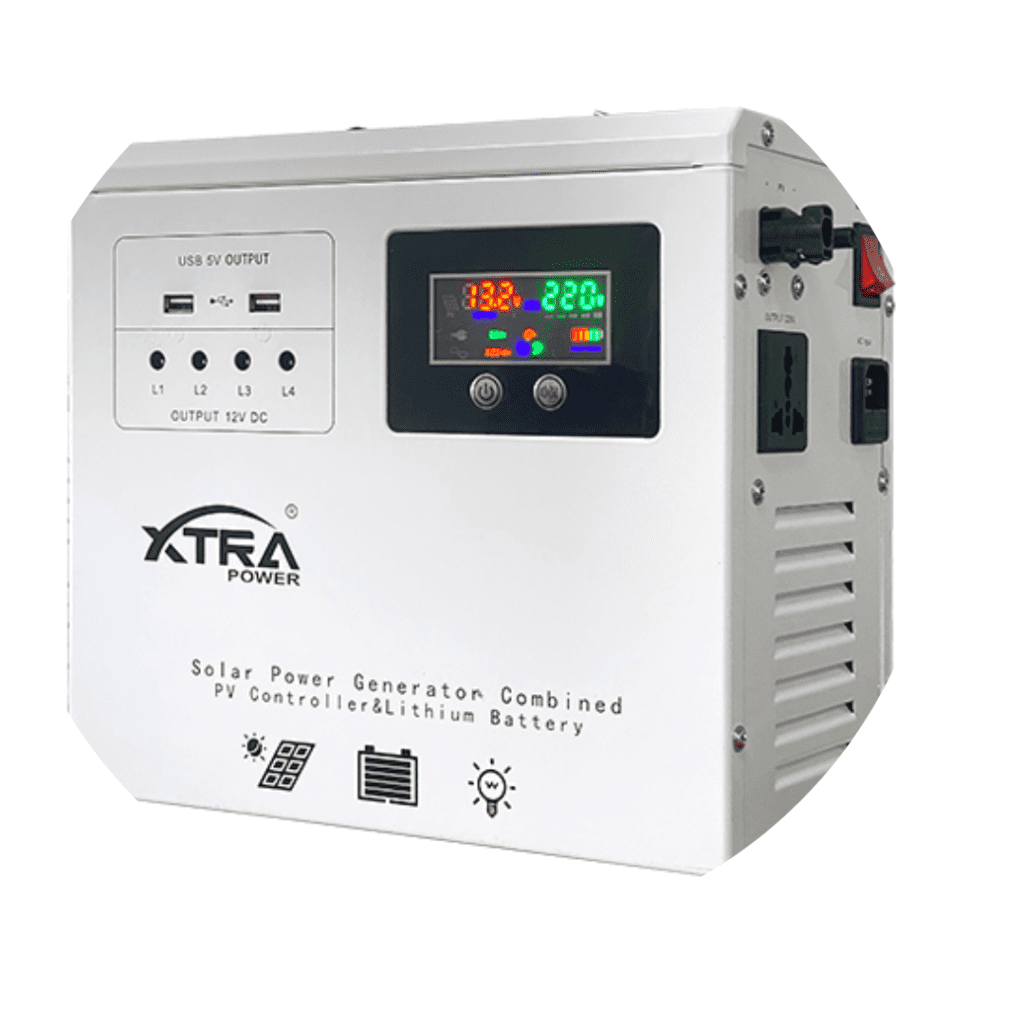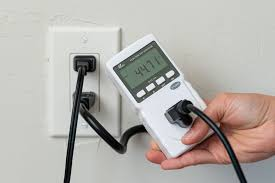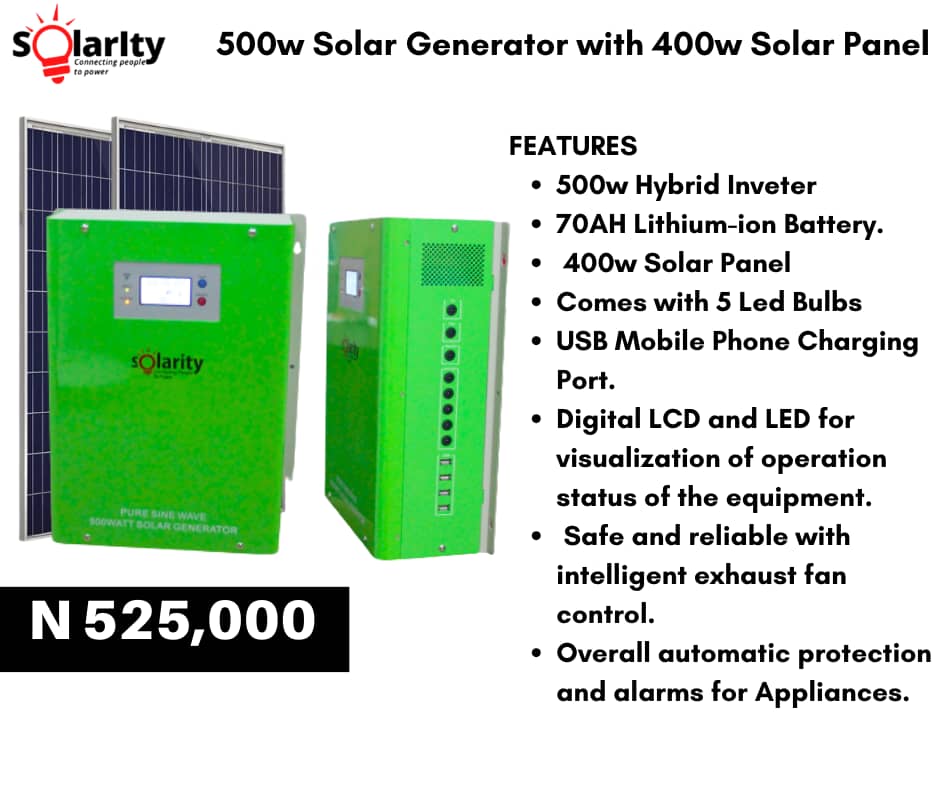How many hours can a solar generator last? The number of hours a solar generator can last depends on its battery capacity, the amount of power it is supplying, and the devices connected to it


Here are the key factors to consider:
Battery Capacity: The capacity of the solar generator’s battery is a crucial factor in determining how long it can provide power. Battery capacity is typically measured in watt-hours (Wh) or kilowatt-hours (kWh). The higher the capacity, the more energy the solar generator can store and supply.
Power Consumption of Connected Devices: The length of time the solar generator can last also depends on the power consumption of the devices connected to it. If you are powering low-energy devices, the solar generator will last longer than if you are running high-power appliances.
Load Profile: The pattern of usage, including whether devices are consistently drawing power or if there are intermittent periods of use, will impact how long the solar generator can last on a single charge.
Efficiency Losses: There are efficiency losses in the process of converting solar energy to electrical energy, storing it in the battery, and then converting it back to usable power. These losses can affect the overall runtime of the solar generator.
As an example, let’s say you have a solar generator with a 500Wh (0.5 kWh) battery capacity. If you are powering devices that collectively consume 100W, the solar generator could potentially last for around 5 hours (500Wh ÷ 100W = 5 hours). However, this is a simplified calculation, and real-world conditions, efficiency losses, and fluctuations in power consumption need to be taken into account.
It’s essential to check the specifications of the specific solar generator you are using, as different models come with varying battery capacities and efficiency ratings. Additionally, consider the power requirements of the devices you plan to connect to the solar generator to estimate its runtime more accurately.

What are the Key Considerations for Choosing a Solar Inverter?
When selecting a solar inverter for your home, there are several factors to consider: Size and Capacity Ensure the inverter you choose can handle the energy output of your solar panels. An undersized inverter will bottleneck your system’s performance, while an oversized one may not be cost-effective. Efficiency Ratings Look
What is a charge controller?
A solar inverter charge controller is another critical component in a solar power system. It regulates the voltage and current coming from the solar panels to ensure that batteries are charged safely and efficiently. Why You Need a Charge Controller Batteries have specific charging requirements, and without proper regulation, you
How Solar Inverters Work in Homes
Harnessing the sun’s power for electricity isn’t just about mounting solar panels on your roof and calling it a day. There’s a critical component in the mix that often doesn’t get as much limelight but plays a pivotal role in your home solar system—the solar inverter. Understanding how solar inverters
Understanding the Basics of Solar Inverters
Harnessing the power of the sun through solar panels is becoming increasingly popular as the world moves towards sustainable energy sources. But the electricity generated by solar panels isn’t immediately ready to power your home. This is where solar inverters come into play, playing a crucial role in any solar
Unlock Solar Savings: Top Tips for Choosing a Budget-Friendly Inverter
Harnessing the power of the sun for electricity is a smart move, both for the environment and your wallet. But when you’re setting up a solar panel system, choosing the right inverter is crucial to ensuring efficiency and cost-effectiveness. Here are some top tips for selecting the best inverter that
Can solar standing fans be used in conjunction with other power sources?
Yes, solar standing fans can be used in conjunction with other power sources to provide flexibility in usage and ensure continuous operation, especially during periods of low sunlight or at night. Here are some ways solar standing fans can be combined with other power sources: Battery Backup: Many solar-powered fans
